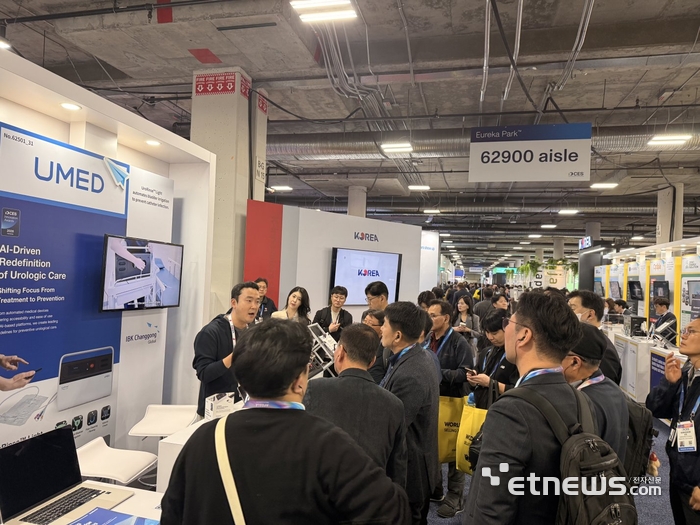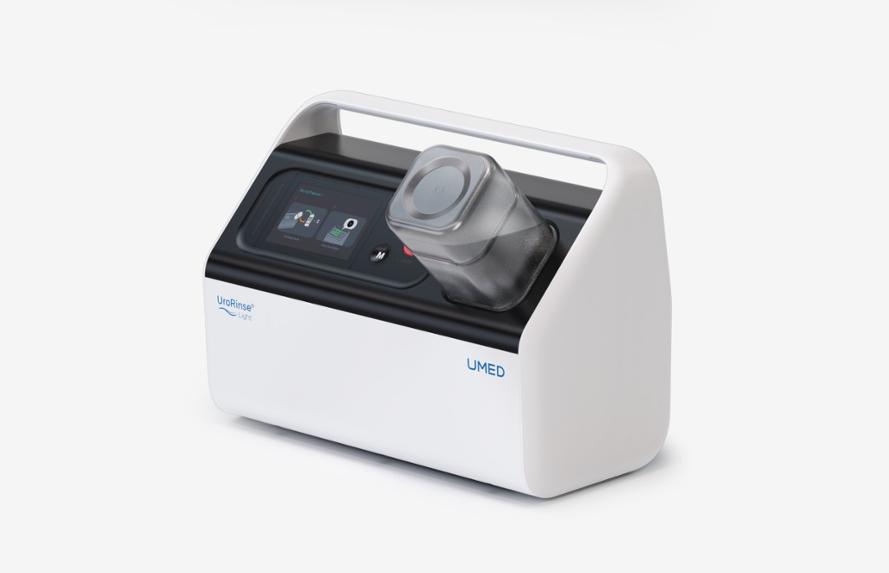
UMED Co., Ltd., based in Gimhae, is gaining recognition in the medical device sector, leveraging the Gyeongnam Center for Creative Economy and Innovation’s Startup Leap Package. Recently, the company has drawn attention in the industry with the development of 'UroRinse™,' an automated bladder irrigation system designed for managing and preventing urinary tract infections in the elderly.
A resident company of the Gimhae Biomedical Center, UMED is a medical device specialist founded in 2020, with a focus on the field of urology. CEO Myungchan Park, a professor of urology at a university hospital, decided to establish the company to address the limitations he experienced with existing medical devices during his clinical practice.
The number of patients with voiding dysfunction rose from 570,000 in 2017 to 750,000 in 2021, marking a 29.8% increase. Of these, only 130,000 received bladder irrigation treatment at hospitals, and over 80% do not receive adequate care. Compounding the problem, medical staff shortages persist—only 2% of certified urologists in Korea are employed in long-term care hospitals.
Manual bladder irrigation procedures are time-consuming, averaging 80 minutes per session, and vary in quality depending on the skill level of the practitioner. To address these challenges, UMED developed UroRinse, a standardized and automated medical device for bladder irrigation. Equipped with sensor-based automatic control technology, UroRinse enables precise and safe procedures. It is expected to be particularly effective in preventing catheter-associated urinary tract infections (CAUTIs), which are a growing concern in the medical community. UroRinse shortens procedure time and ensures standardization through automation, reducing the burden on healthcare providers. Moreover, it allows bladder irrigation to be performed with minimal assistance, improving accessibility for patients in nursing homes or at home.
UMED’s growth was supported by the Startup Leap Package, one of the startup support programs run by the Gyeongnam Center for Creative Economy and Innovation. The program, sponsored by the Ministry of SMEs and Startups and the Korea Institute of Startup & Entrepreneurship Development (KISED), supports early-growth startups between 3 to 7 years old.
With this support, UMED enhanced its product's completeness through optimized design, component stabilization, and user feedback integration. The company also systematically prepared for regulatory approvals and successfully moved toward commercialization. UMED has filed eight related patents and underwent business assessments in clinical, technical, regulatory, insurance, and business model categories.
UMED aims to expand UroRinse into a digital healthcare platform that integrates medical data with artificial intelligence (AI). Their ultimate goal is to build a urology-specific AI platform capable of real-time patient monitoring, infection prediction, and personalized treatment support using clinical data collected through UroRinse.
CEO Park stated, “Beyond simply supplying medical devices, we aim to create a smart urology ecosystem that delivers competitive healthcare solutions domestically and globally through AI-based patient data analysis and personalized care. We will continue to lead digital transformation in urology and deliver meaningful innovation to both patients and medical practitioners.”






